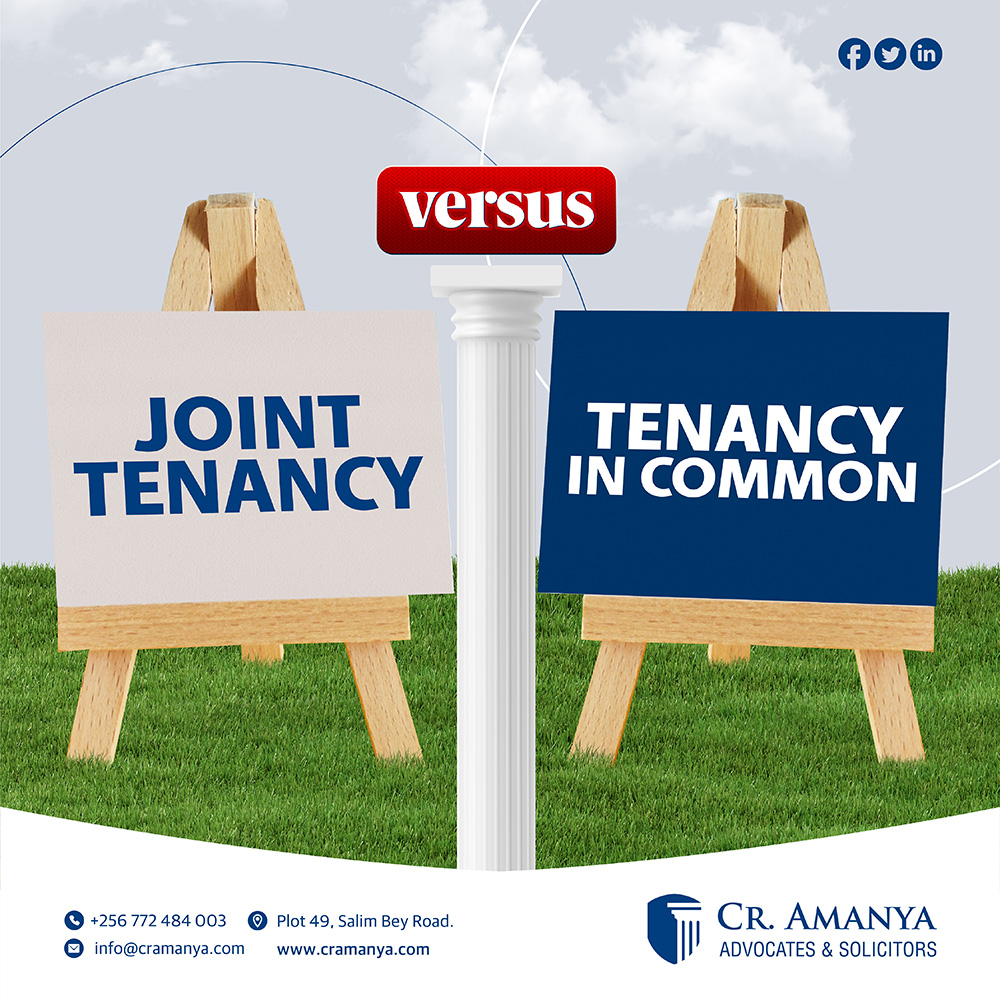Co-ownership of land is where two or more persons concurrently own an interest in land. We feel this topic is not talked about enough. People often buy property together and register it in both their names and consequently become co-owners of the land. They are both entitled to enjoy and use it and claim a mutual right in the whole land and not a separate portion. However the rules governing joint ownership of land are not often talked about.
Co-ownership of land may be in joint tenancy or tenancy in common. If two people are registered on a Certificate of Title without the words “Tenancy in Common”, it is assumed that they are joint tenants. A joint tenancy is where 2 or more persons together as a group own the entire interest in the land; hold the whole jointly and nothing separately. They do not have distinct shares in the land. Joint tenancy has two principal features, the right of survivorship and the presence of 4 unities;
- Unity of possession (each co-owner is entitled to an undivided possession of the whole land e.g. if a husband and wife own their matrimonial house in joint tenancy, one cannot say that the kitchen belongs to the wife and the sitting room to the husband. The house as a whole unit belongs to both of them.
- Unity of interest (the interests in the land are identical in nature and duration). If it is a lease, it has the same duration for both and they are both entitled to equal share of rent if the land is rented or leased out.
- Unity of time (the interests of each joint owner must vest at the same time).
- Unity of title (both co-owners derive title from the same act or document.
The right of survivorship (jus accrescendi) is the scary one. Upon the death of one joint tenant, his interest in the land is extinguished and therefore the surviving tenant becomes the sole owner of the property. If X,Y and Z are joint tenants, if Y dies, his interest is entinguished and that of X and Z become enlarged. Upon X’s death, Z, the last man standing, becomes the sole owner of the land. This is what is known as the doctrine/right of survivorship. Because of this doctrine, property held in joint tenancy cannot devolve by will or intestate succession unless the joint tenancy has been previously severed in the lifetime of the deceased joint tenant.
THEREFORE, if people buying a piece of land together intend that their interest be separate and distinct, it is imperative that to avoid any confusion and need for interpretation/argument, they add words of severance. Section 53 of the Registration of Titles Act, Cap 230 of the Laws of Uganda, provides that where the instrument of transfer to two or more persons is registered without specification to the nature of the co-ownership, the proprietors are presumed to hold in joint tenancy.
We request the Registrars of Title, to advise persons (except for legally married persons where the presumption of advancement applies in joint tenancy even where there was unequal contribution to the purchase price) who are registering and desire to hold land as joint tenants to indicate on the instrument of transfer whether they are “joint tenants” or desire to hold the land as “tenants in common.” This goes for people who invest together and yet they are just cohabiting and not legally married in accordance with the laws of Uganda. Note that a joint tenancy can be divided or altered voluntarily by the parties during their lifetime or by a compulsory court order.

